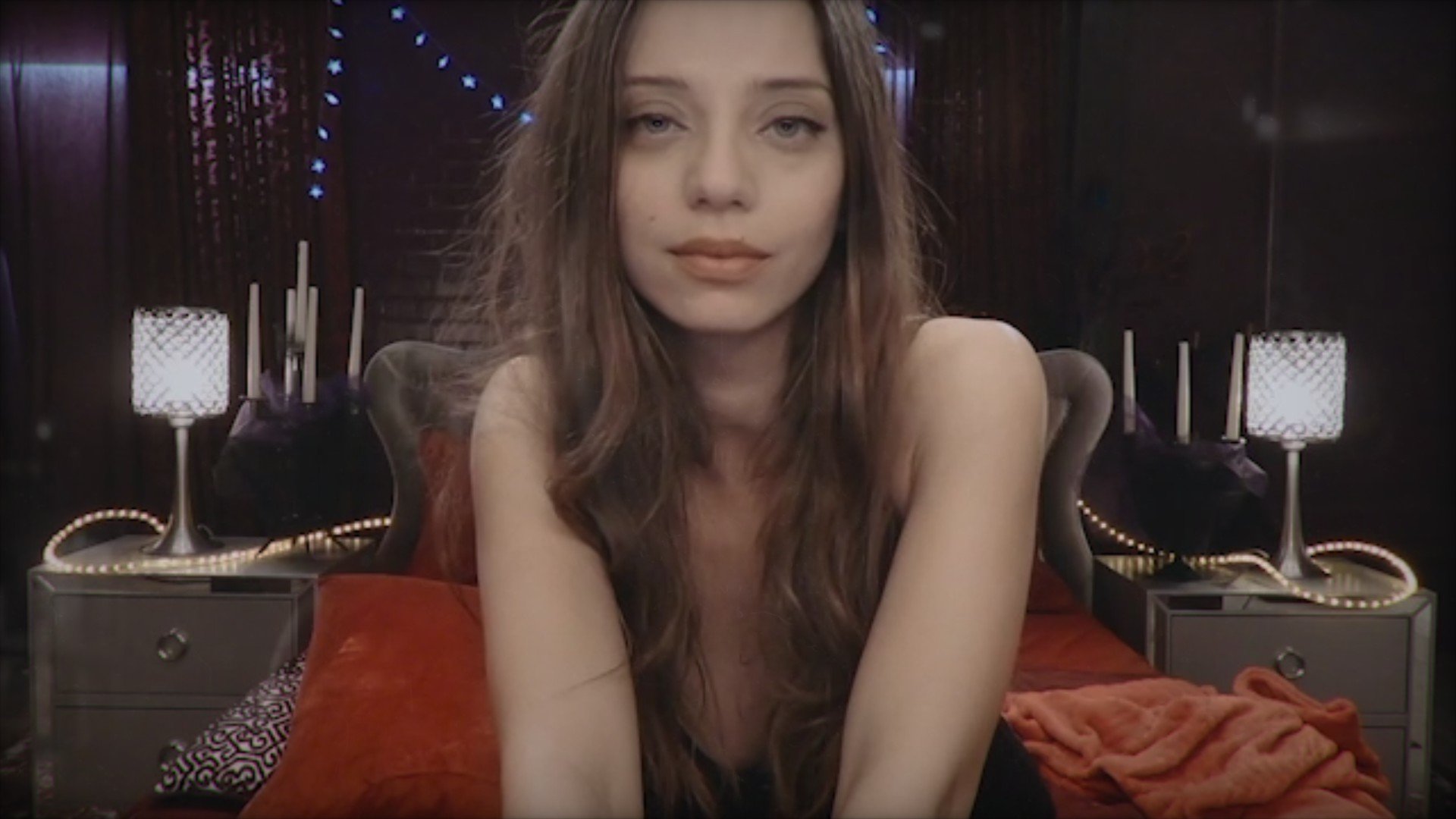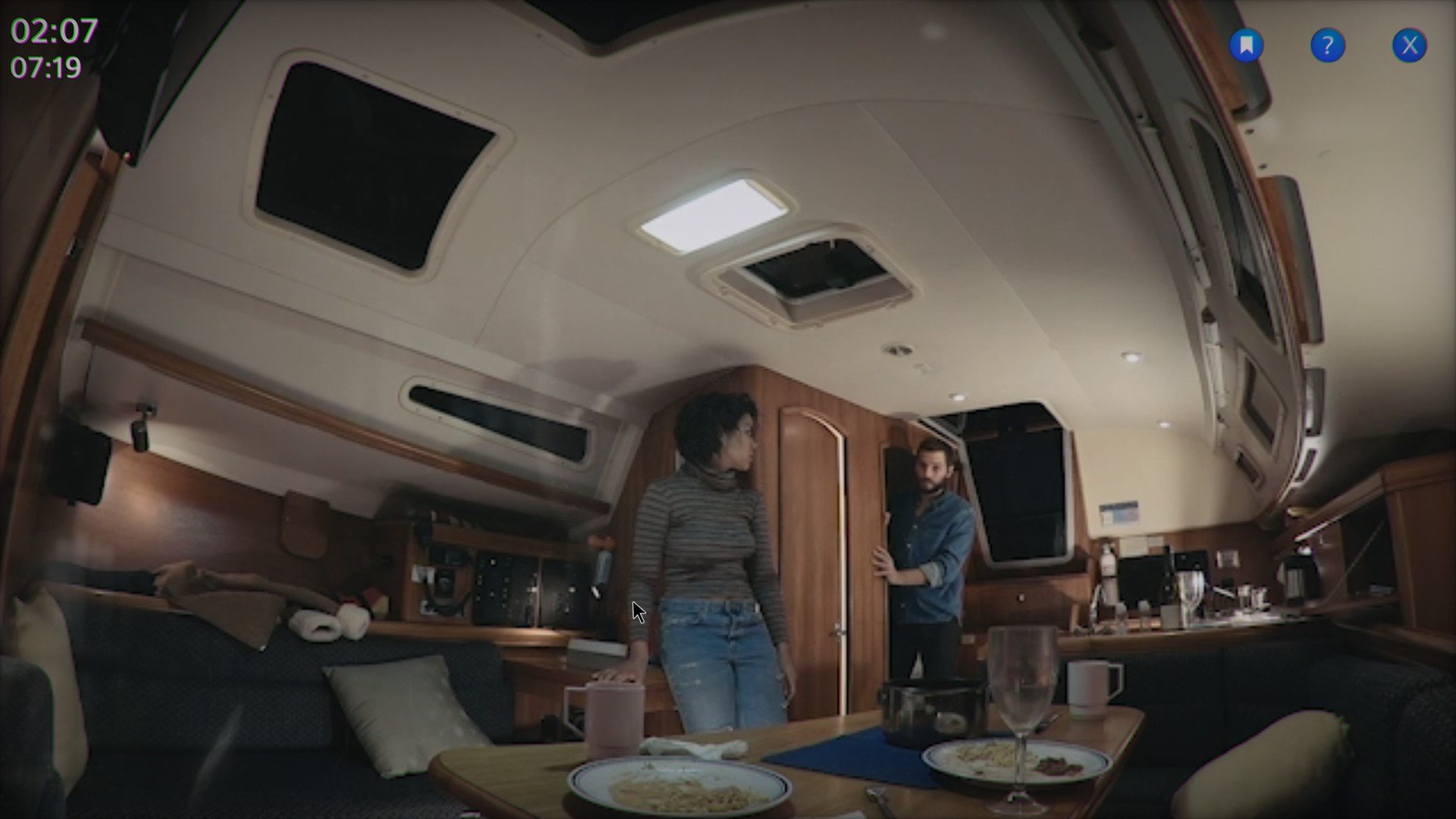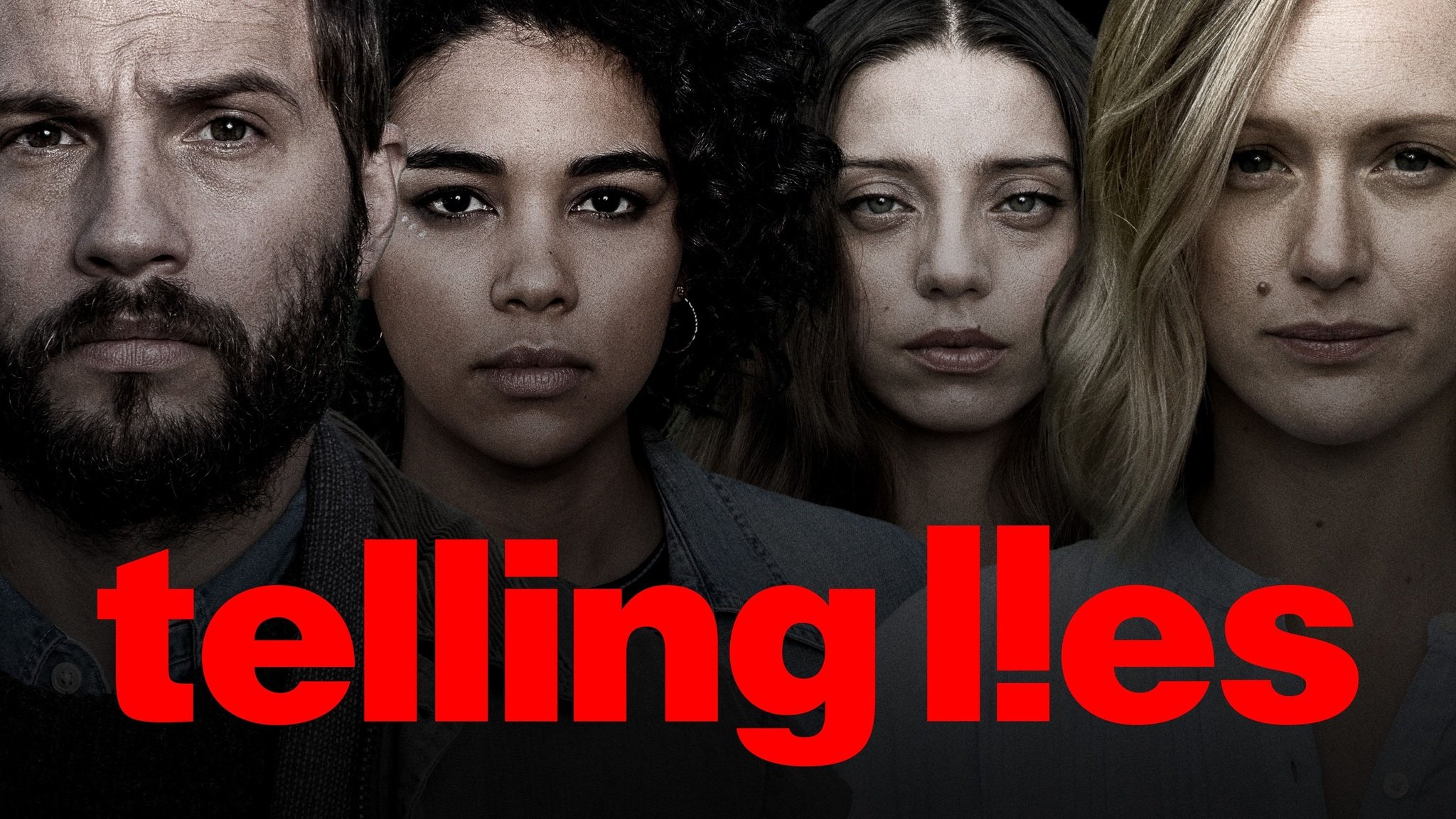Sam Barlow on Telling Lies hitting consoles and how to craft 'intimate' stories for the TV
Telling Lies felt "intimate" on PC, but on consoles it's an entirely different story.

All the latest news, reviews, and guides for Windows and Xbox diehards.
You are now subscribed
Your newsletter sign-up was successful
Ever wanted to drop in on other people's conversations? Unless you work for the NSA, you probably haven't had the opportunity. People who played Telling Lies, the interactive, live-action video game developed by Sam Barlow of Her Story fame, were able to experience this when the game came out in 2019.
Now, console players will get the chance since the game is set to release on PlayStation 4, Xbox One, and Nintendo Switch on April 28. This will be the first time one of these games by Barlow will get a console release (Her Story only released on PC and mobile).
"It was intimate in a way that was equally compelling to how it played out on the other devices."
Telling Lies, the spiritual sequel to Her Story, stars Logan Marshall-Green, Alexandra Shipp, Kerry Bishé, Angela Sarafyan, and more. It tells four main intersecting stories (and other, smaller ones) concerning the four main characters. The player takes on the role of a mysterious woman who has a stolen database of NSA footage featuring these people and how their lives linked up over the course of a couple years. They then have to search through all of the videos — some recorded in the privacy of these people's homes — and figure out how they all relate to each other, and what the incident was that tore their lives apart.
Like in Her Story, the player can search for clips using specific terms they come across. Unlike Her Story, Telling Lies is much larger, showing both sides of many conversations, thereby forcing the player to not only figure out what the video they're watching means but also how it connects with other videos. Some of the conversations are one-sided, and it's likely you'll be viewing them out of order. New to Telling Lies, you can now fast-forward and rewind through the videos, which allows you to skip sections where the characters are silent or fiddling awkwardly if you so wish.
Overall, it's a very complex story, with many, many hours of content to sift through as you figure out what exactly happened. While it's more akin to an FMV with mostly static video, Telling Lies is also similar to open world games that rely on exploration and discovery to give players a sense of accomplishment. As Barlow put it in an interview with Windows Central, "For me, coming from this place of just loving exploration and freedom, how does that apply to a story? What if that's the verb that we're using is to explore a story? Suddenly that gets interesting to me."
Recently, we spoke with Barlow about how he and his team were able to get this experience over onto consoles.
Windows Central: What made you decide to put this on consoles?
All the latest news, reviews, and guides for Windows and Xbox diehards.
Sam Barlow: When I was gainfully employed pre-independent I think everything I made was console only. The leap into indie, making something that was PC and mobile-focused, was the easiest thing to do. With Her Story, it was so designed for those two experiences that console didn't 100% make sense. Going into Telling Lies, we already had in mind that it would be nice for this to make sense on console. We already were thinking of the core experience in terms of getting away from the keyboard. So the idea of being able to click terms within the actual experience, having it be more of this tactile exploratory thing with the video and scrubbing through the video being a thing, that would make sense.
It was like a fun thing where looking at the PC version and the mobile version [of Telling Lies] and people ask "well which is the best way to play it?" And I would be torn because playing it on my phone would directly mimic what it is like to have Skype conversations with our nearest and dearest, which was a thing that was a big influence on the game. But then, sitting and playing at a computer, I'm now fully mimicking this idea that the character is set at a computer, surrounded by her apartment. Then when we tried putting it on console and played around with it, you get this interesting third thing, which is playing it on a living room TV. Suddenly, all these intimate domestic scenes where you're talking to people in their bedroom or in their living room, having these conversations spool out in something that approximates real time, felt incredibly intimate in a different way... It was intimate in a way that was equally compelling to how it played out on the other devices.
That's interesting because when you're playing Telling Lies on a computer, you're in the place of the woman behind the camera, and I felt like having it on a big TV would take away from that. What differentiates it in a good way for you?
SB: If I'm playing on a phone I'm probably playing with headphones on, if I'm playing sat at my computer, I might have headphones on, Generally, if I'm playing a game on my TV then it's kind of all encompassing, so it's like having these intimate scenes play out where people are talking directly to you. That coming out of a TV is very different. It's not like sitting and watching a Netflix show. It's quite theatrical. There's something really cool about having that footage going up on the screen, having these people speak, completely merging your kind of domestic space with the spaces in the game.
The sensation we wanted to create was we were thinking a lot about surveillance, and what it is to spy on somebody… the idea of how closely you come to know someone if you just sat immersed in the minutiae of their daily lives, listening out for the interesting stuff but also just, being with them over this prolonged period of time. There are a lot of conversations that are not necessarily directly about the plot. There are long periods of silence the way that you listen to these conversations, there are some scenes where very little happens for several minutes. And actually, when I've played it on a console, you can sort of lean back and enjoy that, even more so because you're in your living room and you're more relaxed and you have the controller in your hands and you can play around with the scrub and stuff. Whereas, if I'm sat in front of my computer, I'm genuinely leaning in… I think there's something about playing it on a console that lets you enjoy and embrace that.

I haven't played the Xbox version version yet so I wasn't sure how you implemented the fast forwarding and the rewinding, but it seems almost like it would be better on console than it is on PC currently just in a sense of how like easy it is to use the joysticks to go back and forth.
SB: The inspiration was coming from these analog devices that have dials and knobs and things on them. There's a sequence in the movie The Conversation where Gene Hackman is spooling and playing around with and rewinding this audio tape and you know he has these wonderful full clicky clacky buttons and dials that he flicks. I remember we had a guy come in to test it on PC but he was like 'oh my god this really takes me back to my first job in the movie industry where I was playing around with an editor reel, which was these big old machines that allowed you to play around with the film. So I think, yes, getting back to having a physical device in your hand, which has these nice analog sticks or clicky triggers definitely marries nicely with the analog feel we were going for.
Did you learn anything from that first release? Did you change anything?
SB: I'm not a tweaker. I'm definitely not like a director's cut type person. So I think it was important that this still do all the things that we were trying to do on the initial release. And it makes sense for this to be on console. I think that was kind of the focus.
What did you tweak following Her Story?
SB: They are on the surface very similar but they're also super different. If I was making a military first person shooter, I might tweak the aiming mechanic, or change how bullets reload, and suddenly that's super innovative. But then when you go create something as different as Her Story. You can then make biggest changes, but it still feels like the same thing because they're both kind of out there. I think in making Telling Lies, the thought process was not wanting to do essentially a straight sequel of sorts… The thing I took away that was interesting to me was the intimacy that people felt [in Her Story].
It was cool that Her Story, despite not really being dynamic or attempting to simulate a conversation, gave a lot of people a really intense feeling that they'd kind of been in some kind of dialogue with this woman… they felt just by virtue of sitting opposite her for essentially a couple of hours, learning about her life, listening to what she's saying, digging into it through using the words, they found it a very kind of intimate experience. So that was something where I was like, "Oh, I'd love to take that further because that is something we don't see a lot of video games."
There's obviously like a huge indie space with Xbox, but it's still generally a different audience so I'm curious, what do you hope that people in this newer audience get from this game?
SB: I remember getting some DMs from someone that was playing Telling Lies on first release and they started sending me some messages at like 11 p.m. on a working weekday. I woke up the next day and went on to Twitter and I looked, and they'd been sending me messages, all through to 5 a.m. They just played the whole thing through and couldn't put it down. That's the ultimate — I made someone incredibly tired for work the next day, because they were digging into this thing.
In Telling Lies, there's a lot of content. You can play it over a couple of nights, you can — obviously the situation right now is challenging people to binge things potentially more. I hope people give it a chance and embrace this slightly different flavor of game. Like, "I'm feeling these jolts of pleasure that my brain is giving me, the sense that I'm discovering and finding things, putting this puzzle together is like really cool."
This interview has been condensed and edited for clarity.

Watch lives unfold from your computer... or TV
You have an NSA database full of videos and don't know what to do with them. Might as well see how the lives of four (and more) characters intersect over a couple of years in this new game from Her Story developer Sam Barlow and see how it ends.

Carli is the Former Gaming Editor and Copy Chief across Windows Central, Android Central, and iMore. Her last name also will remind you of a dinosaur. Follow her on Twitter or email her at carli.velocci@futurenet.com.
